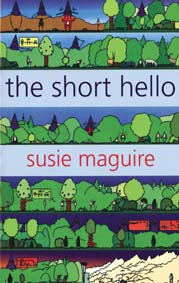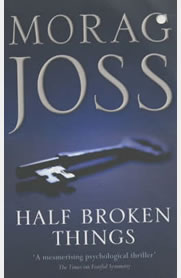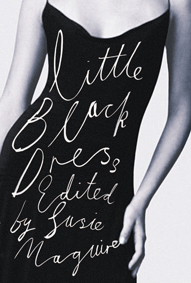A Book Reviewer’s Tale
In 2003, I was a freelance book critic for the Sunday Herald (Scotland, UK). The paper’s literary editor, Alan Taylor, worked for part of the week at a long table in a rather gloomy office overlooking Edinburgh‘s handsome St Andrew’s Square, and every week I would go in and spend an hour or so looking through the tottering heaps of new books that he had pulled out as being worthy of consideration for review.
At this point in my own writing career, I had co-edited three well-received anthologies of short fiction, and my own first story collection The Short Hello had been published. I had been subsidising my own writing by regular book reviewing for about 6 years, for a variety of publications. The thing I most liked about reviewing was not writing the reviews, (though I did strive to be conscientious and generous of spirit, whether I liked a book or loathed it) but the sheer enjoyment of reading so much, of having easily to hand an assortment of literary output, and of being paid to absorb it, think about it, form an opinion of it. That was a pleasure and a privilege.
Usually I reviewed whatever Alan asked me to; sometimes that was factual books, about the great outdoors (I am not a happy camper), or historical figures (I’ve never been able to remember whether there was more than one Napoleon, or on what dates he retreated or advanced), but mostly it was literary fiction, often by Scottish authors, and a wide variety of Crime fiction.
Browsing the stack of new hardbacks one day I picked up Half Broken Things by Morag Joss. An elegant smoky blue cover, with silver details. The name was semi-familiar, I began to remember reading two or possibly all three of her Sara Selkirk novels, set in Bath (England), and admiring the author’s characterisation and her stylish prose. I tucked it away into my ‘take home’ pile, and carried on browsing.
Later that night, I picked up Half Broken Things again and began reading. My usual pattern when reviewing was to read with notebook at hand. Well, I started reading it at my desk, with a pen and paper, retreated to the sofa, then to bed, and sat up until the small hours, totally gripped, scribbling page references and quotes, turning page after page.
The next day I emailed Alan Taylor and said ‘Please let me review this book. It’s something special. I feel really strongly about it.’ I think I made some point about how not enough fiction by women seemed to be taken seriously, and that here was something to counter that prevalence. I do remember his slightly amused assent.
When it came to writing my review, I felt nervous. I wanted to convince readers to buy that book. I wanted to show them what I had found, and more than that, I felt a strong desire to convey to the author that her work had resonated with me. That’s a rather tricky position for a reviewer who is supposed to aim at objectivity, or impassivity, in analysis of another writer’s work. I did that, but I had to edit out a number of superlatives in order not to gush and blow my ‘cool’. The final line of my 800 word review read ‘Joss is a writer to treasure’.
Rewind the calendar about a year: in 2002, I’d had the idea to write 5 linked stories on the theme of the iconic Little Black Dress for BBC Radio 4‘s Afternoon Readings slots. The idea was warmly received by Radio 4, but it was suggested by the commissioning editors that I only write two of the stories and invite other authors to contribute. Hm. That I did, rather grudgingly, but already in my mind this was the template for an anthology of Little Black Dress tales. The original five stories were recorded in 2002, broadcast in Spring 2003, by which time I had a publisher interested in the book.
So, by the time I read Morag’s wonderful novel, my editor-brain was already casting about for women writers to add to my wish-list, and her name went straight to the top. After the review of Half Broken Things ran, I emailed a copy of it to the publicist at Hodder & Stoughton, as was my protocol, and then asked if they would be kind enough to pass on a message to the author. They agreed, and I wrote to Morag. I don’t remember now what I said, or how she replied, but I do remember feeling inordinately pleased that she would entertain the idea of contributing to Little Black Dress. (Believe me, nobody makes any money out of short stories, so her involvement was clearly in the spirit of the idea, rather than the few miserable quid on offer.) Her ‘LBD’ story, The Girl Before, was so good it sent goosebumps up my spine.
We quickly became e-mail friends, with great delight on my part because all the qualities I had divined in her work were there fully in her emails – she’s funny, sensitive, warm, witty and incredibly generous.
We finally got the chance to meet in 2004; Morag had come up from Wiltshire (England) to Glasgow for a family event, so I took the train over to meet her for lunch in a boutique hotel for which only at the last minute I realised I was somewhat underdressed. She came into the foyer in an amazing faux-fur coat, with a big smile. We hugged as if we’d been friends for years. I had been slightly apprehensive about whether our communication would be replicable in person, but we hit the ground running, made each other laugh a lot and talked about our writing lives.
Still do; I’ve counted her as a close friend, and an absolute gem, ever since. When I’m unsure about my own writing, or about life in general, her perception illuminates and her humour lifts me up. She is a great ally and mentor, too, having negotiated the publishing world longer than I have, and I never fail to be impressed by her grace and her modesty about her own work.
The Little Black Dress anthology was published in 2006 and launched with an event at the Edinburgh International Book Festival. Apart from me and my two stories, there were 14 contributors to LBD, all women. I am proud to have had their company, largely virtual but still exhilarating, during the long process of getting the book into print. Better than any book, though, is the communion that happens when you meet someone and have great rapport; someone whose existence makes your life better in myriad ways. Morag is one of those people. Lucky me.
—
Susie Maguire is an actor, writer, editor & broadcaster. She lives in Edinburgh, (Scotland) where she is working on a novel and a third collection of stories.
Morag Joss’s new novel Among The Missing is published in the US on June 21st 2011 by Random House & will be published in the UK as Across The Bridge by Alma Books.
Little Black Dress is published by Polygon (UK) and the contributors are: Michelle Berry, Stella Duffy, Rosemary Goring, Muriel Gray, Morag Joss, Susie Maguire, Jean Marsh, Hannah McGill, Candia McWilliam, Kate Mosse, Yvonne Adhiambo Owuor, Sian Preece, Elizabeth Reeder, Manda Scott, Shelley Silas.
The hardcover edition was illustrated throughout by Tulta Behm.
Category: British Women Writers, Friendships between Women Writers, On Writing







Fully agree Clare! Now we have another avenue for discovering friends, not just bus, train, plane and boat rides. (I met one friend on a flight from Paris to NYC).
About Susie’s post here. There are so many dimensions of this story that are worth calling out. Getting to hear from a writer who writes books reviews for a living, for a newspaper. That’s valuable. Seeing that some books just resonate at a whole different level. It just happens, and it’s powerful. Learning about Susie’s creative idea of 5 linked stories, and how that grew into many more, was performed on radio, and became a book anthology. And it’s always affirming to hear of friendships that start from afar, long shots, and thrive.
Thank you so very much for squeezing time from your deadlines to tell this story for us. It celebrates who we are on so many levels.
Internet friendships can be wonderful, very special things.